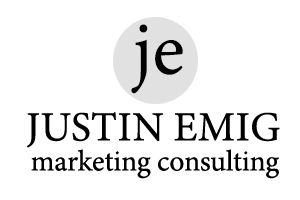Facebook and the Media Identity Crisis
Do consumers really know the media outlets they view content on?
Recently, Vice CEO Shane Smith made the comment that Facebook bought 2/3 of the media companies in the world without spending a dime. His point is that Facebook is taking over the media business. And he is dead right....
Do you know what you read?
I was interviewing a recent college graduate looking for an opportunity in digital marketing and primed with a hint to do some homework, we ask the candidate what pieces of content they have been consuming. They express they have been reading hours of content everyday and I ask, "What is your favorite site to read content and who are some of your favorite authors?" The response I received? "I have no idea." I initially thought he didn't actual read anything and thought he was not being truthful.
But then I thought about Mitch Joel....
Almost a year ago on the Beancast (or maybe longer), Mitch Joel made the comment that to many people "Facebook IS THE INTERNET." This comment is a perfect segue to Mr. Smith's point.
Facebook's Catch 22 User/Attention/Advertising Problem
Facebook has always had the audience, but lacked the rich content consumers wanted to enjoy. Facebook was great at putting this content in front of their massive audience, but what was Facebook's problem? You leave the site to go to the media platform. Exit Facebook's experience and enter the media company's funnel. Bad for Facebook.
Facebook slowly pinches off organic reach until the media outlets (and brands) need to pay Facebook to reach the same customer. If you are Facebook, why wouldn't you charge them. You are using YOUR platform to drive customers to their funnel. People bark and complain, but quickly adopt to the pay for play model and Facebook's revenue from advertising continues to increase.
But Facebook still has the fundamental problem, users leave their site. Why can't they keep the customer within the Facebook ecosystem and still enjoy the content? Enter Facebook Instant Articles. Now you do not have to leave the Facebook walled garden to enjoy the content that OTHERS already created. The media outlets initially jumped on board, drunk off of the previous success they saw with Facebook and googly eyed over the audience. Until the constant stream of consumers slowed down.
Now, media outlets are less likely to put content directly on Facebook and they are going to go back to using Facebook as a customer acquisition medium, through advertising. This is bad for Facebook.
However, Facebook continues to hold the cards because the consumers want content and they do not care who they get content from. Thus, the identity crisis amongst the media landscape today.
Commoditization of Media
Think back to the last few articles that you read. Do you remember where you read them? Was that site syndicating the content or were they the author of the piece? Are you sure? Many media sites are syndicating content originating on other sites and masking it as their own and continuing to increase the identity crisis.
Facebook is in a ripe position to absorb media companies/publications/etc. and bring the content that consumer request, native to their platform. Why hasn't Facebook done this yet? Perhaps they are trying to squeeze media outlets tighter and tighter until they lose their value, or Facebook wants to preserve the advertising revenue. If publishers top buying ads in search of customer acquisition, no revenue increases every quarter.
This is quite the predicament for Facebook, but with the unwavering interest of consumers thirsty for a constant stream of new content from countless sources makes the stakes quite high. If consumers never have to leave 'the internet' and could consume their content, quickly and easily, from outlets they trust (even that isn't necessarily required), and it is easy to share, they would surely spend more time on the platform and allow more monetization of their attention.
When Facebook is the landlord, be prepared for rent increases, and dwindling apartment sizes, especially when they are buying up all of the available units in town.
